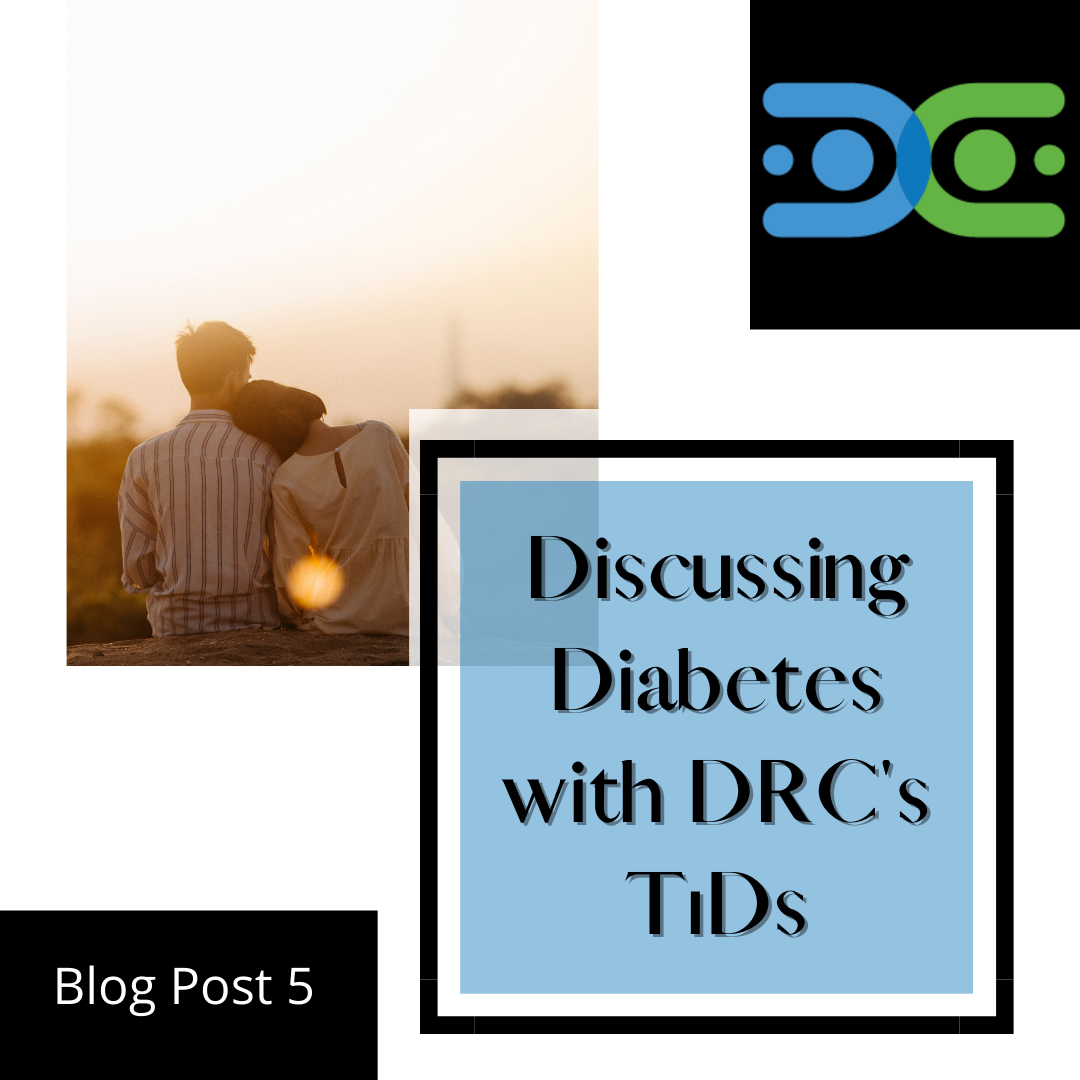If you have type 1 diabetes (T1D) and are in a relationship, your partner has type 4 diabetes (this is not a real thing, just something my family and I made up. I should also note that parents have type 3 diabetes). This week I read JDRF’s article, “Type 1 Diabetes and Committed Relationships,” and thought I would take a crack at my personal journey through T1D with my significant other. While one might assume that my friends and family genuinely know my experiences, struggles, and successes, no one knows them better than the man who gets out of bed at 3 AM to get me a juice because I am low or knows when I need to change my site before I do.
JDRF states that cooperation and communication are key to having a stable relationship with a significant other. The organization explicitly mentions that even when I am “feeling on edge,” I should “remember that your blood sugar can affect your mood. Knowing where your blood sugar is and communicating its impact to your partner can be helpful.” My boyfriend knows the difference between a low blood sugar and high blood sugar based on how I behave. When we first met, it was a struggle to communicate what exactly I was feeling, but telling him how he could help gave him more control and allowed him to be more helpful to me in return. When I am high, my boyfriend realizes that my communication is more bark than bite and laughs it off or gives me the space I need to just wait out the pain. He can’t help me physically lessen the discomfort of a high blood sugar, but he can help me by being understanding and not pushing.
I can’t emphasize this enough, but no T1D wants to be told how to manage their health, especially from a non-diabetic. My boyfriend does not push me to test my blood sugar more, doesn’t berate me when I eat another piece of pizza, or lectures me on wearing my CGM more consistently. He does remind me that I probably should test a little more frequently after having the extra pizza and also mentions that I could eat a bunch of pizza and not be annoyed with how often I am testing if I just put my CGM on. This is where another topic that JDRF touches on comes to play; compromise. When my boyfriend makes these suggestions, I take them seriously. He always says he wants me to be the healthiest I can be so that we can be together for a long time. So even though I don’t love wearing my CGM 100% of the time, I think about how much easier it is on both of us when I have it on because maybe I can catch that low blood sugar before my numbers drop too quickly and he doesn’t need to get up in the middle of the night to get me juice. The article mentions, “… with type 1 diabetes your partner may feel that they are making more compromises than you are.” A lot of us don’t want to be a burden on our significant other, but having T1D is already a compromise, in my opinion. What I think works best is finding the rhythm that suits your relationship and having a LOT of open communication.
If you are the significant other to a T1D, please try to be supportive and understanding. T1D is not a disease that you can turn off or decide you aren’t going to deal with for a few hours. It’s a full-time job, and it requires some help. Ensure you are educated by asking questions and having access to resources that can also give you answers.
This blog was written by Hannah Gebauer, DRC’s Development Assistant, who has had T1D for 17 years and is responding to the article, “Type 1 Diabetes and Committed Relationships.”





